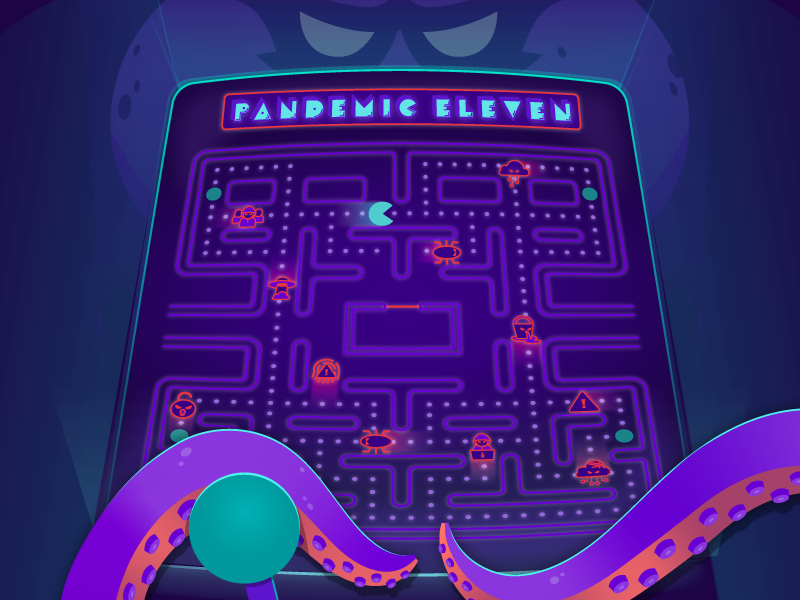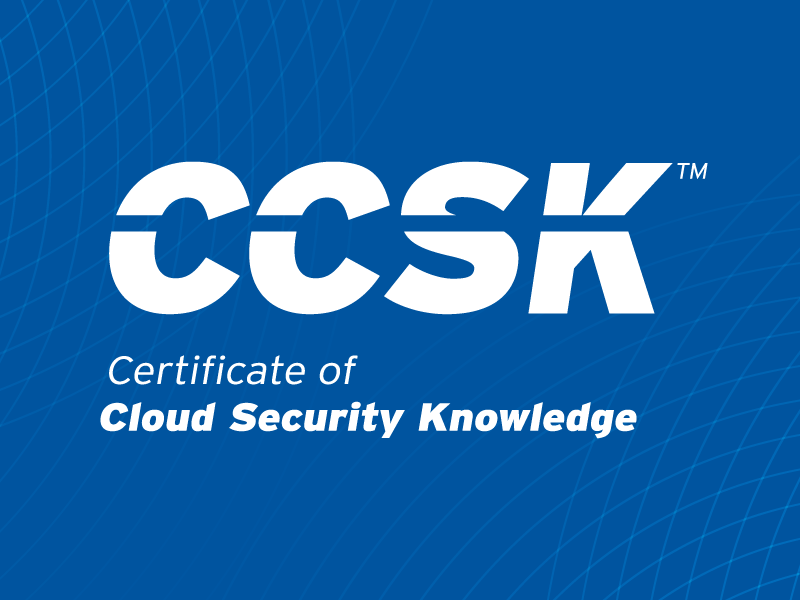How to Earn Continuing Education Credits: Cloud Security Events, Training, and Resources
Published 06/18/2021

What are Continuing Education Credits?
Continuing Education Credits are a requirement for maintaining professional certifications in fields like cloud security, cybersecurity, and IT. These credits are necessary for certifications such as CISSP from (ISC)2 or CISA from ISACA. Earning credits ensures that professionals engage in various professional development activities to stay current with industry standards. (ISC)2 allows you to complete your credits at any time during the three-year cycle, while ISACA requires a minimum of 20 credits annually.
Why do Continuing Education Credits Matter?
Continuing Education Credits ensure that professionals keep up-to-date with the latest advancements and standards in their fields, promoting ongoing learning and professional development. This is important in dynamic industries such as cloud security and cybersecurity, where new technologies and threats continuously emerge.
How to Earn Credits with CSA
CSA offers multiple resources (both in-person and online) that count towards your credit requirements. These are designed to not only maintain certifications, but to deepen knowledge in specific or new areas of cloud security. Here’s how you can leverage CSA to earn credits:
Events and Conferences
Engage in various in-person and virtual events hosted by CSA, where you can network and learn about key cloud security topics, offering attendees a chance to earn Continuing Education Credits by attending a session or training. For instance, our premier event, SECtember, held annually in Bellevue, Washington, offers numerous sessions where attendees can earn credits.
For a full calendar of upcoming events, visit our events page.
Training
Participate in self-paced or instructor-led online or in-person training. Here is a selection of the CSA training programs and certificates currently available:
- Certificate of Cloud Security Knowledge (CCSK): Widely recognized as the standard for expertise in cloud security, the CCSK gives you a cohesive, vendor-neutral understanding of how to secure data in the cloud. This course is the foundation to earn additional credentials specific to certain vendors or job functions.
- Certificate of Competence in Zero Trust (CCZT): The winner of Cyber Defense Magazine’s 2024 Global InfoSec Award for Cutting-Edge Cybersecurity Training and the industry’s first authoritative Zero Trust training and certificate, the CCZT provides an in-depth understanding of Zero Trust critical for security professionals seeking to advance their careers and maintain their organization’s security posture.
- Generative AI & Prompt Engineering: This one-hour course is an introduction to AI and machine learning basics, with a focus on generative AI models.
- Cloud Infrastructure Security Training: These courses each take about one hour to complete, and are designed to introduce different critical aspects of cloud security.
View all online training and certificate options on the CSA Training site or view the Training Schedule for upcoming instructor-led online and in-person training.
Live and On-Demand Webinars
Attend free, live or on-demand webinars through our CloudBytes channel on BrightTalk. Topics cover new technologies, trending topics, and the latest research insights in cloud security. Attending or watching a recording of a one-hour webinar can earn one credit.
View all upcoming and on-demand webinars hosted by fellow cloud security experts, CISOs, CEOs, and company founders to start earning your credits.
Research Publications
If you prefer learning through reading, you can also earn Continuing Education Credits by reading CSA research publications. One hour of reading will typically count for one credit. Here are three recent examples of the many papers CSA has published:
- The State of AI and Security Survey Report: Commissioned by Google, this report provides insight into how industry experts view and are preparing for AI’s evolving role in cybersecurity.
- Top Threats to Cloud Computing: Pandemic Eleven 11 Deep Dive: An analysis of the top breaches presented as use cases and as threat models. These results can help organizations make educated risk management decisions regarding their cloud adoption strategy.
- Security Guidance for Critical Areas of Focus in Cloud Computing: Our most comprehensive publication establishes a stable, secure baseline for cloud operations. This resource provides an actionable roadmap for managers wanting to adopt the cloud.
View all of the latest CSA research and reports here.
Submitting Your Credits
After completing any qualifying CSA session or training, submit your certificate of completion to the respective certification body, such as (ISC)2 or ISACA, for credit validation to receive possible Continuing Education Credits.
Stay Informed and Certified
CSA is dedicated to defining and raising awareness of cloud-related best practices, and to helping you earn the necessary Continuing Education Credits to maintain your certifications and enhance your professional growth.
If you have any questions or need help understanding which learning path is best for you, please reach out to [email protected].
Attendees and participants receive one Continuing Education Credit for every 50 minutes of content consumed or completed. Following the webinar, session, or course, a certificate of completion will be issued that reflects your total number of credits awarded. This certificate can be submitted for possible CPE credits. All CSA training, events, and webinars are compliant with NASBA standards for CPE providers.
Unlock Cloud Security Insights
Subscribe to our newsletter for the latest expert trends and updates
Related Articles:
CCM v4.1 Transition Timeline
Published: 02/19/2026
The CSA Triangle Chapter’s Year of Momentum: 2025 Highlights
Published: 12/11/2025
Introducing TAISE: The Trusted AI Safety Expert Certificate
Published: 10/22/2025






.png)
.jpeg)
.jpeg)
.png)